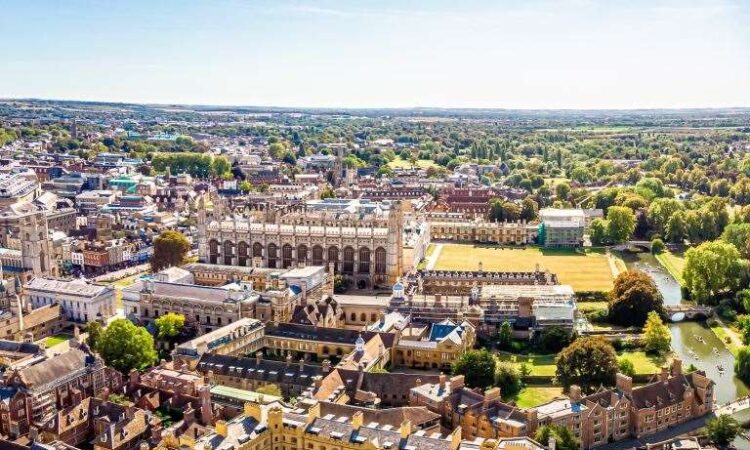
People in Cambridge are more than £21,000 worse off than they would have been had the UK economy continued to grow at the rates it did before 2010, according to a new report.
Meanwhile, housing affordability has continued to get worse and Cambridge’s population has grown more than any other UK city.
The Centre for Cities said people in the UK have been left with £10,200 less to spend or save on average since 2010 than if the economy had grown at the rate it did between 1998 and 2010.
A comparison by the think tank of disposable incomes in the UK’s 63 largest cities and towns showed that while every place except Aberdeen was better off, most of them were effectively ‘out of pocket’ due to the flatlining of the UK economy.
Londoners would have had £13,590 more in gross disposable income over the period since 2010 if the economy had grown at its earlier rate.
mpu1
And Cambridge people have fared much worse – they would have had £21,340 more in their pocket, the study indicated. Only four other cities were more heavily impacted than Cambridge.
The real-terms increase in gross domestic household income per head in Cambridge between 2010 and 2021 was just £399.
Meanwhile, housing affordability – already an issue in 2010 – has continued to get worse, eating into disposable incomes. The average house in Cambridge is now nearly 16 times more expensive than the average income, compared to 11 times more expensive in 2010.
These combined trends have impacted on the level and nature of poverty in the UK. The proportion of children living in relative poverty has risen in almost every city since 2014, with a particular increase in in-work poverty.
In Cambridge, 11 per cent of children are now living in poverty. That is an increase from fewer than 10 per cent in 2014, or an additional 333 children.
However, the city continues to outperform for new economy firms, with Cambridge just being pushed into second place by Brighton for the number of new economy firms – those in emerging knowledge-intensive sectors like fintech and advanced manufacturing – per 10,000 working age population.
The city also had the second lowest unemployment benefit claimant count and the third highest percentage of people with high-level qualifications. And it was fourth in terms of new job creation in the country between 2010 and 2022, with the number of net new jobs up 24.5 per cent. Only Luton, London and Reading had higher figures.
mpu2
Andrew Carter, chief executive of Centre for Cities, said: “Both the two main political parties have pledged to grow the economy and the General Election debate will have growth at its heart. The challenge for the next government is to go beyond the rhetoric and to do what’s needed to make this rhetoric a reality.
“The UK has had a torrid time since the Great Recession. Everywhere, up and down the country, including places that were doing relatively well before, has been levelled down because of the lack of growth. To get growth in every place, the next government needs to act at a radically different pace and scale, and mark the beginning of a multi-decade policy programme.
“The first step in a realistic approach to grow the economy is to recognise that the British economy is an urban economy. Cities account for nine per cent of the land and over 60 per cent of the economy, as well as 72 per cent of high skilled jobs. Their slowdown is at the heart of why the national economy is struggling. There is no plausible way of achieving higher growth without increasing the innovation and dynamism of urban Britain.
“This means reforming the planning system to enable cities to grow, devolving more powers and financial freedoms to encourage our big cities to make decisions that support growth, and following the levelling up rhetoric with bold actions.”
Cambridge City Council leader Cllr Mike Davey responded: “Cambridge residents are acutely aware of how their disposable income has been squeezed since 2010, most recently highlighted by the cost of living crisis. While productivity is presented as the key driver of long-term growth, residents are also confronted by sky-high housing and energy costs, alongside years of wage stagnation.
“Additional investment in infrastructure for water, power, transport and housing is necessary for fast-growing cities like Cambridge to make the most of our economic potential and for growth to be sustainable.
“We also need devolved powers for local democratic institutions to have greater influence over how those investments are deployed, so that these cities can thrive, improve the quality of life of local people and benefit the UK economy too.”
Cllr Elisa Meschini, chair of the Greater Cambridge Partnership’s executive board, said: “Cambridge continues to grow – with many benefits such as new jobs, high earnings and opportunities – but there are challenges in what is a relatively small city. We see that in the cost of housing and people’s ability to afford a home. This is why growth needs to be managed and done in a balanced way.
“Cambridge cannot hope to sustain the increase in its population without developing the infrastructure required to get people to work, to school or to see their friends. This is why we are working with our partners to create the segregated busways, improve connectivity from rural areas and improve the facilities within the city.”
Separate studies have shown the UK economy grew by 1.2 per cent between 2010 and 2021.






